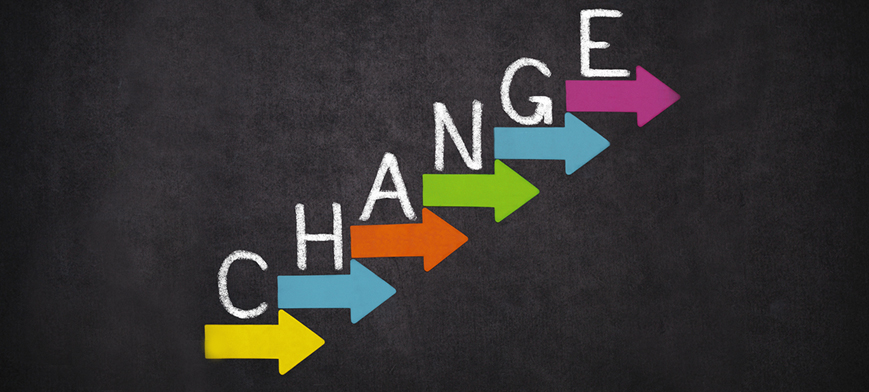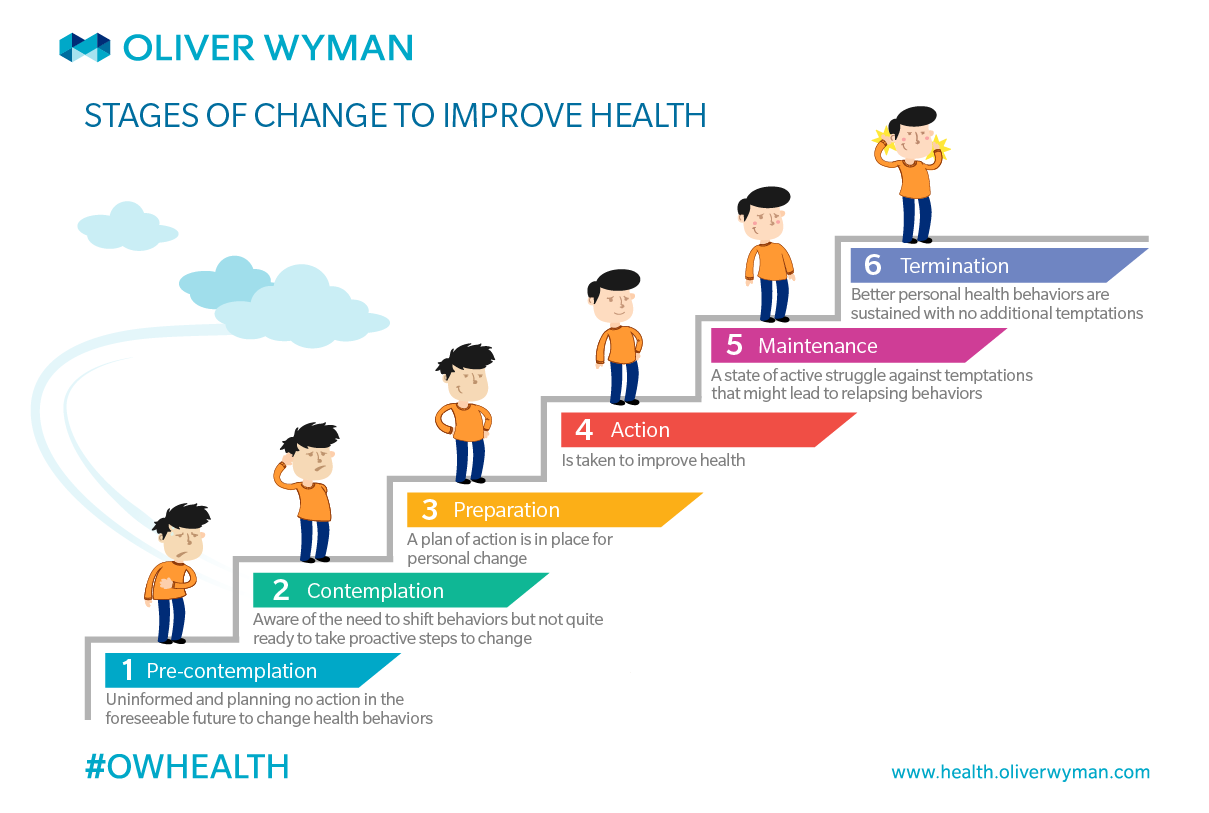Consumer engagement is a strategic imperative for players across the healthcare industry. But putting consumer engagement on the to-do list and achieving meaningful engagement with members or patients is a different matter. Many health organizations approach the challenge focused on the end goal—smart use of health benefits, weight loss, managing a chronic disease, etc. Instead, they should focus on the many stages that come before the end goal.
That’s according to Ivor Horn, MD, MPH. Dr. Horn is chief medical officer of Accolade, which is co-headquartered in Philadelphia and Seattle and provides healthcare concierge services to employers, health plans, and health systems. Accolade marries highly personalized service with high-tech analytics and data mining to help consumers navigate their health benefits and healthcare experience. It utilizes a nearly 40-year-old biopsychosocial model known as stages of change to guide its interactions with health consumers. Focusing on the early stages, rather than the end goal, ultimately leads to better health outcomes and lower overall costs. Not only that: changing behavior and achieving sustainable improvements calls for different interventions at each stage of the process.
Here, Dr. Horn explains how Accolade employs the stages of change model.
Nearly 40 years ago, while conducting a study on smokers at the University of Rhode Island, James Prochaska and Carlo DeClemente began to articulate a progressive behavioral adaptation process they called stages of change.
Unhealthy behaviors are best addressed, the scientists suggested, by successive shifts in understanding, willingness, and action. Abrupt changes—going cold turkey on smoking or excessive drinking, for example—are neither realistic nor sustaining. Meeting the patient where she is, in terms of understanding and willingness, and helping her move toward healing, on the other hand, is both realistic and sustaining.
Change in action, over time
At its heart, the change model is a decision-making model—a process that invites individuals and their providers to consider and actively address those factors that impact health. It’s crucial for both the individual and the provider to recognize that the process doesn’t happen overnight, but instead over time. Changing behavior, and achieving sustainable improvements, calls for different interventions at each stage of the process. To change outcomes, we need to build upon incremental successes over a period of several months, not days or weeks.
Consider the diabetic who has not yet been diagnosed. That individual is most likely in a pre-contemplation stage—uninformed and planning no action in the foreseeable future. Once diagnosed or educated, that person moves toward contemplation—aware of the need to shift behaviors but not quite ready to take proactive steps. Subsequently there is a period of preparation; the person has, at last, a plan of action. Following that, action is taken—the sugars reduced, the blood levels monitored. Maintenance follows—the active struggle against temptations that might lead to relapsing behaviors. Finally, there’s termination, at which time the patient is no longer tempted; better health behaviors are sustaining.
A winning model for Accolade
The stages of change model is integral to our work at Accolade, where, by creating relationships with individuals through our Accolade Health Assistants and smart technologies, we can assess where a person is in the cycle and help them navigate solutions as they progress through each stage.
For example, if an individual calls to clarify health plan benefits, their Health Assistant uses the interaction as an opportunity to learn more about their situation and assess their holistic health needs. A person who is reacting to a new symptom may be in the contemplation stage of engagement with the healthcare system, which allows us to support their transition to the preparation stage through education. Serving as a core advisor, our Health Assistants stay with individuals for the long term, identifying opportunities for proactive change and helping them get on the right care path. Not attempting to push patients through change phases in a single interaction is key to establishing a relationship of trust and influence.
Scaling stages of change
The stages of change model has demonstrated its ability to impact individuals; it now offers a meaningful framework for a series of interventions that can shift outcomes for entire populations.
We know that improving the health of entire populations – and driving down the costs of care – demands a new approach, one that helps us engage each person, not just the sick who are preparing to enter the system or the sickest already in it. How do we address the health needs of people outside of the four walls of the health system – where they live, learn, work, play and pray?
If we can intervene early, even in the pre-contemplation stage, we can help keep healthy people healthy. We can help a 45-year-old woman with a family history of breast cancer get the mammogram at the right time. We can help prevent stress from damaging a heart. We can help prevent sadness and stress from escalating into depression.
But even when we’re talking about change on a broad scale, it still all begins with one-on-one relationships. With getting to know people long before they are sick. With mining claims data to proactively identify those who are on a path to consuming care. With utilizing proprietary predictive modeling to identify high-risk individuals. With reaching out to those at risk in ways that shorten the stages of pre-contemplation and contemplation and move the person directly into the right (and often preventative) care.
Every interaction, an opportunity
At Accolade we’ve discovered that individuals are the best predictor of future healthcare needs. When you listen to people over time, you understand what is both possible and necessary, not just for individuals but for much larger swaths of the population. Every interaction is a chance to learn. Every interaction is a chance to do right by individuals and society.




